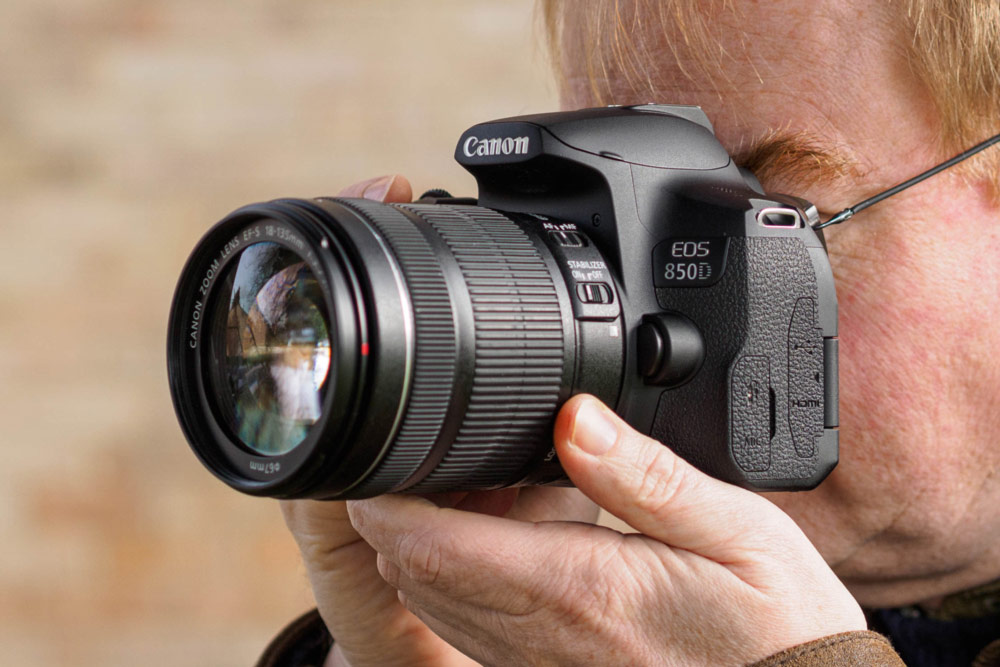Why Choose a Mirrorless Camera Over a DSLR: A Detailed Guide
The debate between mirrorless cameras and DSLRs is a hot topic in the photography world. As technology advances, professional photographers constantly seek the best tools to enhance their craft. Let's dive into why a mirrorless camera might be a better choice over a DSLR.

The Evolution of Camera Technology
Understanding the evolution of camera technology is essential. From film to digital, and now to mirrorless, each leap has brought significant improvements. The absence of a mirror mechanism in mirrorless cameras offers unique advantages that we'll explore in detail.

Size and Weight: A World of Difference
One of the most noticeable benefits of mirrorless cameras is their compact size and lighter weight. Without the mirror and optical viewfinder, these cameras can be significantly smaller and lighter than their DSLR counterparts. This is especially beneficial for photographers who travel or work on long shoots.
For more on the benefits of travelling light with photography gear, check out this [guide on shooting panoramas with your DSLR](https://photo4art.com/blogs/news/how-to-shoot-panorama-on-an-dslr-camera).

Autofocus Capabilities: Speed and Precision
Mirrorless cameras use advanced autofocus (AF) systems that rely on the image sensor. This results in faster and more accurate AF performance, particularly with eye detection and subject tracking. This can be a game-changer for professionals shooting fast-moving subjects or working in unpredictable environments.
Real-time Preview: The Electronic Viewfinder (EVF)
The EVF in mirrorless cameras offers a real-time preview of how your photo will look. This includes exposure, white balance, and depth of field. Such instant feedback allows photographers to make quick adjustments, ensuring the perfect shot every time.

Focus on Innovation: Cutting-Edge Features
Mirrorless cameras are often at the forefront of innovation. They frequently receive new technologies and features before DSLRs. These may include in-body stabilization, superior 4K video capabilities, and enhanced connectivity options such as Wi-Fi and Bluetooth.
For those interested in the latest in-camera tech, exploring [how to clean your DSLR camera lens at home](https://photo4art.com/blogs/news/how-to-clean-dslr-camera-lens-at-home) can be incredibly useful.
Battery Life: Consider the Trade-offs
One area where DSLRs have an edge is battery life. The optical viewfinder in DSLRs does not draw power like an EVF, allowing for longer shooting sessions. However, the gap is closing, with manufacturers continuously improving the energy efficiency of mirrorless models.
Versatility and Lens Compatibility
DSLRs have been around longer, offering a wider range of lenses. However, mirrorless systems are rapidly catching up, with major manufacturers expanding their lens line-ups. Many mirrorless cameras also support adapters, allowing the use of DSLR lenses, which adds to their versatility.
For those wanting to delve deeper into camera functionality, check out [what is an EOS DSLR camera](https://photo4art.com/blogs/news/what-is-eos-dslr-camera).
Cost Considerations
Cost is always a factor in choosing camera gear. Initially, mirrorless cameras were more expensive, but prices are becoming more competitive. When considering a purchase, think about the long-term benefits and potential cost savings in weight, size, and future-proof technology.
Professional Opinions and Case Studies
Many professional photographers have transitioned from DSLRs to mirrorless systems and have shared their experiences online. For example, this [ultimate guide on getting started with a DSLR camera](https://clippingmagic.com/resources/dslr-camera-the-ultimate-guide-to-getting-started-fast) might offer additional insights.
Conclusion: Making the Switch to Mirrorless
The choice between a mirrorless camera and a DSLR ultimately depends on your specific needs as a professional photographer. Both systems have their strengths, but the edge may go to mirrorless due to their advanced features, compact design, and ongoing innovations. The future of photography technology seems to be heading towards mirrorless, making it a worthwhile investment for professionals.
FAQs
1. Are mirrorless cameras suitable for all types of photography?
Yes, mirrorless cameras are versatile and can be used for various types of photography, including landscapes, portraits, action shots, and more.
2. Is the transition from DSLR to mirrorless difficult?
The transition can be smooth, especially since many mirrorless cameras offer user-friendly interfaces. Additionally, adapters can help use existing DSLR lenses.
3. Do mirrorless cameras have shorter battery life?
While mirrorless cameras generally have shorter battery life due to the EVF, ongoing advancements are continuously improving their battery efficiency.
As an Amazon Associate, I earn from qualifying purchases.

